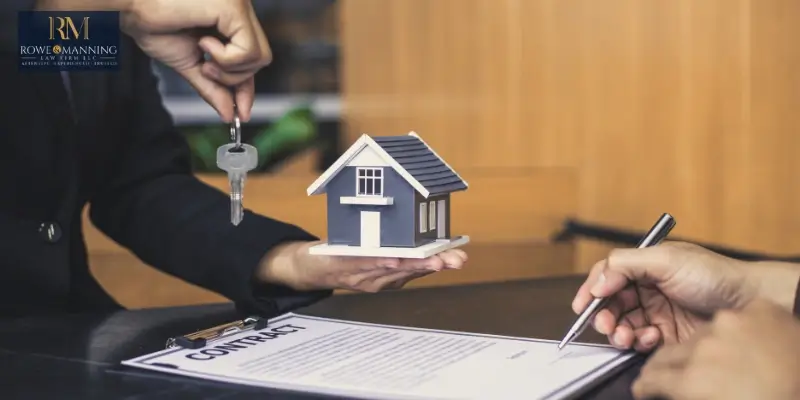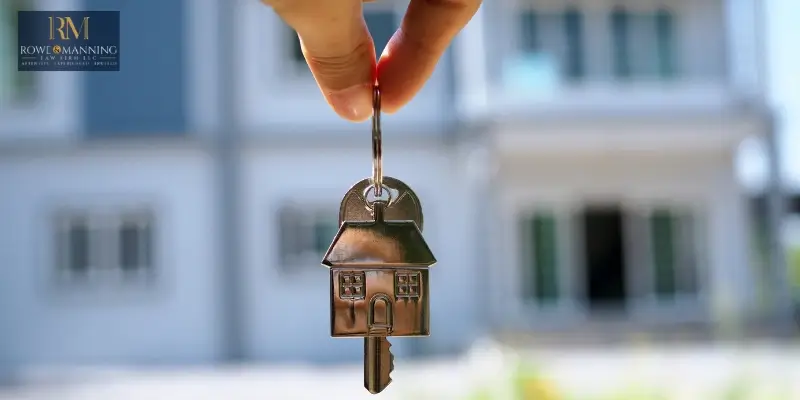Prairieville Homeowners Association (HOA) Attorneys
Homeowners’ associations often push the limits of their authority. Some enforce unreasonable restrictions or ignore legal boundaries. Those affected have to understand what HOAs can and cannot do. Working with a Prairieville Homeowners’ Association (HOA) lawyer can help you stand up to unlawful enforcement from an HOA.

Reliable Representation in HOA Disputes
Rowe & Manning Law Firm LLC has defended clients against overreach for over 15 years. HOA conflicts require precision and decisive action. With experience across multiple legal areas, we anticipate challenges before they come up and push for strong results. Louisiana’s growth and stability matter and legal guidance promotes fair outcomes for both homeowners and HOAs alike.
Common Legal Issues With HOAs
Homeowners’ associations set rules that affect property owners in several ways. While these regulations serve to maintain community standards, conflicts often come up when HOAs exceed their authority or enforce rules unfairly. Homeowners should understand the legal boundaries of an HOA’s power to prevent unnecessary conflict.
One common issue involves selective enforcement. An HOA cannot impose a rule on one homeowner while ignoring similar violations elsewhere. Unequal treatment can give homeowners grounds to challenge enforcement actions.
Another frequent dispute concerns rule changes. An HOA might have the power to change restrictions, but those changes have to follow proper procedures and cannot impose unreasonable burdens on homeowners.
Financial challenges can also cause conflicts between HOAs and property owners. An association might impose unique assessments for unexpected expenses, but homeowners have the right to review financial records to verify that funds are managed correctly. Homeowners can take legal action if an association does not disclose the required financial information.
Homeowner Protections
Laws exist to prevent HOAs from abusing their authority. Homeowners have rights under state statutes and HOA governing documents. These rights allow homeowners to push back against unfair enforcement, excessive fees, or unreasonable restrictions.
In most cases, a homeowner can request a hearing if they believe that an HOA acted improperly. This process allows the homeowner to present evidence and argue against the association’s decision. If an internal resolution is not possible, mediation or arbitration might provide a path to settlement without litigation.
Public records like meeting minutes and financial statements can help homeowners verify an HOA’s compliance with its responsibilities. If an association withholds this information, legal remedies might be available. Transparency is important on both sides to prevent HOA disputes from escalating.
When to Seek Legal Help
Legal assistance might be necessary when an HOA in Louisiana oversteps its authority or fails to comply with its own rules. Homeowners should recognize situations where professional guidance can prevent further issues, including:
- Unlawful rule enforcement. If an HOA selectively enforces rules or imposes penalties without proper notice, legal intervention might be needed. A homeowner should verify whether the association followed its own procedures before accepting a fine or restriction.
- Improper fees or assessments. Unexpected fees or assessments might violate HOA documents. Homeowners can challenge these charges if the association does not provide a valid reason for collection or they misuse the funds. Reviewing a HOAs financial disclosures can reveal mismanagement.
- Liens or Foreclosures. An HOA can attempt to place a lien or initiate foreclosure over unpaid dues. If the association did not follow legal steps, homeowners might have defenses that prevent property loss. Seeking legal counsel early can prevent serious consequences.
- Denied access to records. Homeowners have a right to review financial records and attend meetings under most HOA agreements. If an association withholds this information, legal action might be necessary to force compliance.
- Property use conflicts. If an HOA enforces unreasonable restrictions on property modifications, business activities, or common area use, a homeowner might challenge the restriction’s validity. Reviewing governing documents and state law can determine whether or not an HOA has overstepped its boundaries.
In cases where an HOA violates state law or its governing documents, homeowners might be able to file a legal claim against them. Courts might intervene when an association enforces unlawful rules. Legal action can compel an HOA to follow its own regulations and uphold the rights of homeowners.

FAQs About Prairieville,LA Homeowners Association (HOA) Law
Can an HOA Restrict How a Homeowner Uses Their Property?
An HOA can restrict how a homeowner uses their property to keep uniformity within a community. These rules limit how an owner modifies a home, uses common areas, or conducts business on the property. An HOA authority comes from governing documents, which homeowners agree to follow. However, these restrictions cannot violate state or federal laws, including those protecting property rights and fair housing laws.
How Does an HOA Impose Fines on Homeowners?
An HOA can impose fines on homeowners after following established procedures. The governing documents should outline the violation process and usually includes notice requirements and opportunities to correct the issues in the inquisition. A homeowner usually has to receive a written notice describing the violation, the potential fine, and a deadline for compliance. If an HOA fails to follow proper steps, a fine might be unenforceable.
How Can a Homeowner Challenge an HOA Rule or Enforcement Action?
A homeowner can challenge an HOA rule or enforcement action by reviewing their governing documents and requesting a hearing with the board. If the issue stays unresolved, mediation or arbitration might offer a way to reach an agreement without going to court. Challenging an HOA’s decision often requires evidence that the rule was enforced unfairly or conflicts with existing laws, so it’s important to document communication in writing.
What Happens if a Homeowner Does Not Pay HOA Dues?
If a homeowner does not pay HOA dues, it can lead to legal and financial consequences. An HOA can charge late fees, revoke access to community amenities, or place a lien on the property. However, HOAs have to follow legal requirements when collecting unpaid dues, including proper notice. Homeowners should communicate with the association if they face financial hardship because some HOAs allow payment plans.
Encourage a Fair Community
HOA conflicts are frustrating, but legal solutions exist. Reviewing your rights with an HOA attorney can help homeowners resolve disputes without unnecessary stress. Schedule a consultation with Rowe & Manning Law Firm LLC to challenge unlawful practices and strengthen the community by preventing recurring issues.

